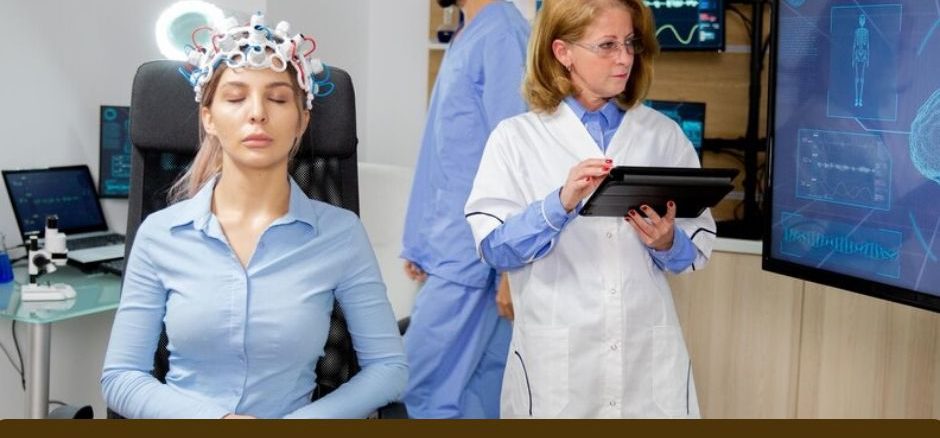what is MRI?
MRI stands for Magnetic Resonance Imaging. It is used in medicine to produce detailed pictures of organs, soft tissues, bones, and even physiological processes within the body without using harmful radiation like X-rays do. MRI Scan is a powerful medical imaging technique that uses strong magnetic fields and radio waves to create detailed images of the inside of the body.
What is a head MRI?
A head MRI is like taking a detailed picture of everything inside your head using a special machine. It’s a medical test that helps doctors see your brain, as well as other important parts of your head like bones, blood vessels, and nerves.
What is a brain MRI?
A brain MRI is taking the whole of your brain to check the supercomputer inside your head, it is using a special machine. It’s a medical test that helps doctors see all the different parts of your brain.
Advantages of brain MRI:
1. X-rays or CT scans: No ionizing radiation is involved.
2. Image clarity: This enables visualizing subtle abnormalities.
3. Versatile applications: diagnoses a wide range of neurological conditions.
The primary differences between a head MRI and a brain MRI are the following:
1. A head MRI examines the whole head, whereas a brain MRI focuses only on the brain.
2. Both are useful tools for doctors to diagnose and comprehend what is happening within your brain.
3. Though the primary focus is the brain, the scan also captures other structures within the head like:
Facial bones
Blood vessels
Nerves
Test Details question and answer or FAQ
Is head MRI and brain MRI the same?
Yes, a head MRI and a brain MRI are essentially the same procedure. Both terms refer to the use of magnetic resonance imaging (MRI) technology to create detailed images of the inside of the head, including the brain, as well as other structures such as facial bones, blood vessels, and nerves. While the emphasis may differ depending on the clinical situation or desire, both head MRI and brain MRI produce detailed images of the head and its contents. As a result, both terms are frequently used interchangeably to describe the same imaging method.
How long is a head MRI?
A head MRI takes 30 to 60 minutes to complete. This covers the time required to position the patient, acquire photos, and take any necessary pauses throughout the operation. To ensure a successful and timely examination, follow all directions provided by your healthcare physician or MRI technologist.
Which scan is best for the brain?
The choice of scan for brain assessment is determined by the specific medical scenario and the information required by the healthcare professional. However, the two most common types of brain scans are magnetic resonance imaging (MRI) and computed tomography (CT).
How does the procedure work for MRI?
Getting Ready: First, you’ll be asked to put on a hospital gown and remove any metal objects, such as jewelry or hairpins, as metal can interfere with the MRI scanner.
Lying Down: Then you’ll lie down on a table that glides inside a large, tunnel-like machine. The part of your body being scanned will be located in the center of the machine.
Staying Still: It’s really important to stay as still as possible during the MRI scan. This helps make sure the pictures come out clear and accurate.
Magnetic Field: The MRI equipment generates a tremendous magnetic field around your body.
Radio Waves: Then, harmless radio waves are aimed at your body, prompting the atoms to send signals.
Signal Detection: Special detectors in the MRI machine pick up these signals and send them to a computer.
Image Creation: The computer analyzes these signals and turns them into detailed, cross-sectional images of the inside of your body. These images show your bones, muscles, organs, and other structures in great detail.
Quiet Time: The machine can be a bit noisy, making knocking or buzzing sounds. Sometimes, you might get earplugs or headphones to block out the noise.
End of the Scan: Once the scan is complete, the table will slide out of the machine, and you’ll be free to go about your day.
Conclusion:
If you’re looking for diagnostic services, Neptune Diagnostic Center could be a great option. Located in Kurla, Ghatkopar East .Neptune Diagnostic Center offers a range of imaging services, including X-rays, CT scans, and MRI scans.
Whether you need a simple X-ray to check for a bone fracture or a more detailed MRI scan to assess soft tissues like the brain or spinal cord, Neptune Diagnostic Center can provide the necessary imaging services.
Before visiting, it’s a good idea to call ahead and inquire about appointment availability, any preparation instructions for specific tests, and insurance coverage. This ensures a smooth experience during your visit to Neptune Diagnostic Center.
Remember, prompt and accurate diagnostic services are essential for timely medical interventions and better healthcare outcomes. So, don’t hesitate to schedule your appointment with Neptune Diagnostic Center for your imaging needs.

